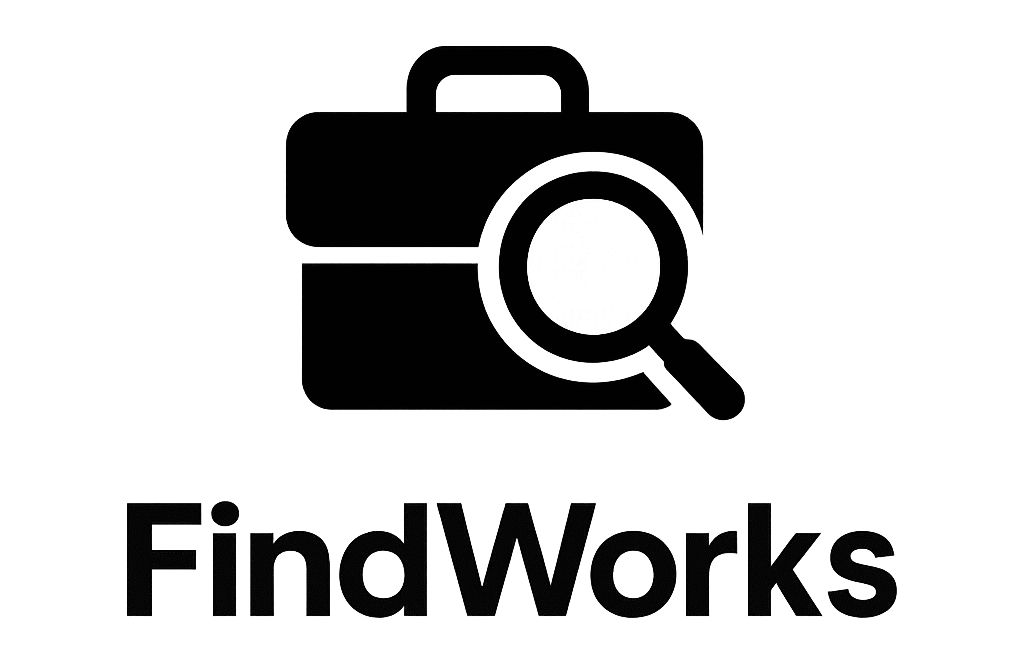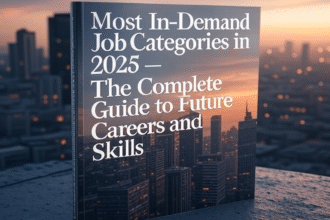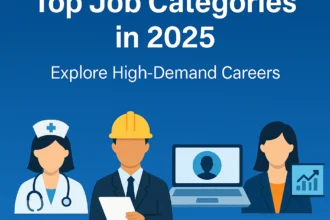Top Job Categories for 2025 — The Ultimate Guide to Future Careers & Trends
top job categories for 2025 are shaping the future of work, offering exciting opportunities across technology, healthcare, finance, and remote industries. As the job market evolves, understanding which careers are in high demand can help professionals make smarter choices for growth and stability. This ultimate guide explores the Top Job Categories for 2025, highlighting the best-paying jobs, emerging roles, and the skills you’ll need to succeed in the competitive landscape of tomorrow.
Why you should care about job categories for 2025
Job markets shift every year. New technologies, regulatory changes, and global trends reshape demand for certain skills and roles. By knowing the top job categories for 2025, you can:
- Target in-demand skills employers are actively hiring for.
- Focus your resume, portfolio, and certifications on relevant areas.
- Make strategic career moves that reduce unemployment risk and increase salary potential.
How to use this guide job categories for 2025
This article covers:
- A curated list of the Top Job Categories for 2025 with explanations and typical roles.
- Key skills and qualifications employers want in each category.
- How to evaluate which category fits your strengths and goals.
- Actionable next steps, resources, and internal links to job search tools on FindWorks.
1. Technology & Software Development
Why it’s top: Technology continues to be a primary growth engine across industries. Software development, cloud engineering, DevOps, and platform roles are in high demand as companies modernize systems and build new services.
Typical roles
Software Engineer, Full-Stack Developer, Cloud Engineer, DevOps Engineer, Mobile Developer, Site Reliability Engineer (SRE).
Key skills
- Proficiency in languages (Python, JavaScript, Java, Go, Rust)
- Cloud platforms (AWS, Azure, Google Cloud)
- Containerization & orchestration (Docker, Kubernetes)
- CI/CD pipelines and testing practices
How to break in: Build a portfolio (GitHub), complete internships, follow open-source projects, and get cloud certifications (e.g., AWS/Azure).
2. Data Science & Analytics
Why it’s top: Data-driven decision-making powers modern organizations. Data scientists, analysts, and machine learning engineers help convert raw data into business value.
Typical roles
Data Analyst, Data Scientist, Machine Learning Engineer, Business Intelligence (BI) Developer, Data Engineer.
Key skills
- Statistics & probability
- Machine learning foundations and libraries (scikit-learn, TensorFlow, PyTorch)
- SQL, ETL tools, and data pipeline design
- Data visualization (Tableau, Power BI, matplotlib)
How to break in: Work on real datasets, publish notebooks, and complete projects that show measurable impact (e.g., improved forecasting or customer segmentation).
3. Healthcare & Biotechnology
Why it’s top: Aging populations and continued investment in biotech and healthcare delivery keep this category strong. Roles range from clinical positions to research and health-tech product development.
Typical roles
Nurses, Medical Technologists, Clinical Researchers, Biotech Research Scientists, Health Informatics Specialists.
Key skills
- Clinical certifications and licenses (varies by role and country)
- Laboratory techniques, regulatory knowledge (GMP, FDA/EMA processes)
- Data and informatics for health-tech roles
How to break in: Gain certifications, volunteer in clinical settings, and pursue internships at hospitals, research labs, or health-tech startups.
4. Finance & FinTech
Why it’s top: Finance remains crucial for all organizations. FinTech innovation creates new roles combining finance knowledge with technology skills.
Typical roles
Financial Analyst, Investment Banking Analyst, Risk Analyst, Compliance Officer, FinTech Product Manager.
Key skills
- Financial modeling, accounting principles
- Data analytics for quantitative roles
- Regulatory knowledge and compliance
How to break in: Internships at banks or FinTechs, CFA/FRM study for specialized roles, and hands-on Excel/SQL projects for modeling roles.
5. Digital Marketing & Content
Why it’s top: Companies need to reach customers through digital channels. Roles that blend creativity with analytics — SEO, content strategy, paid media — are essential.
Typical roles
SEO Specialist, Content Marketer, Social Media Manager, PPC / Paid Media Specialist, Growth Marketer.
Key skills
- SEO & content strategy
- Analytics platforms (Google Analytics, GA4)
- Paid advertising tools (Google Ads, Facebook Ads)
How to break in: Manage sample campaigns, run blogs or social channels, earn certifications (Google, HubSpot), and show measurable growth metrics.
6. Engineering & Advanced Manufacturing
Why it’s top: Infrastructure projects, renewable energy, robotics, and advanced manufacturing are expanding. Engineers who can design, prototype, and scale products are in demand.
Typical roles
Mechanical Engineer, Electrical Engineer, Robotics Engineer, Process Engineer, Manufacturing Engineer.
Key skills
- CAD and simulation tools
- Understanding of materials and manufacturing processes
- Cross-functional teamwork with product and supply chain
7. Green Jobs & Sustainability
Why it’s top: Climate goals and regulation push investment into renewable energy, energy efficiency, and environmental services. This creates roles in project development, policy, and technical implementation.
Typical roles
Renewable Energy Engineer, Sustainability Manager, Environmental Consultant, Energy Analyst.
Key skills
- Energy systems and policy knowledge
- Lifecycle assessment and sustainability reporting
8. Skilled Trades & Construction
Why it’s top: Infrastructure investment and housing demand keep trades in high demand. Skilled trades often offer stable earnings and strong local demand.
Typical roles
Plumber, Electrician, HVAC Technician, Construction Project Manager, Welding Specialist.
Key skills
- Technical certifications and apprenticeships
- On-site safety and equipment operation
9. Education & Training
Why it’s top: Upskilling and lifelong learning create demand for educators, trainers, and instructional designers — especially for online learning modalities.
Typical roles
Instructional Designer, eLearning Developer, Corporate Trainer, K-12 Teacher, Curriculum Developer.
Key skills
- Curriculum design and pedagogy
- Familiarity with Learning Management Systems (LMS)
10. Public Sector & Nonprofit
Why it’s top: Government agencies and nonprofit organizations hire across policy, program management, and service delivery. These roles are essential for community services and social impact.
Typical roles
Program Manager, Grants Specialist, Policy Analyst, Community Outreach Coordinator.
11. Remote & Gig Economy Roles
Why it’s top: Remote work and freelancing continue to expand, enabling distributed teams and flexible work arrangements. Demand is strong for remote-capable roles in tech, design, writing, and virtual assistance.
Typical roles
Remote Customer Support, Freelance Developer, Virtual Assistant, Remote Project Manager.
Key tips
- Create a strong remote-ready portfolio and set up reliable communication tools.
- Highlight remote collaboration experience on your CV.
12. Creative & Design Roles
Why it’s top: Visual storytelling, UX/UI design, and product design are central to product success. Creative roles intersect with marketing, product, and engineering teams.
Typical roles
UX Designer, Product Designer, Graphic Designer, Motion Designer, Copywriter.
Key skills
- Design tools (Figma, Sketch, Adobe Suite)
- Portfolio with case studies demonstrating process and impact
Checklist: Preparing to move categories or apply within a Top Job Categories for 2025 — The Ultimate Guide to Future Careers & Trends
- Update your CV with category-specific keywords and accomplishments.
- Create a tailored portfolio or case study for the category.
- Get one or two short credentials relevant to the category.
- Network with 5–10 professionals in the category and request informational interviews.
- Practice common interview questions specific to the category.

Conclusion
Choosing the right category can transform your job search from scattershot to strategic. The Top Job Categories for 2025 identified in this guide reflect both demand and opportunity — but the best choice depends on your skills, interests, and lifestyle goals. Use the recommended learning paths, build tangible projects, and apply consistently through category-specific channels to maximize your chances of success.
Start exploring jobs now on Top Job Categories in 2025






